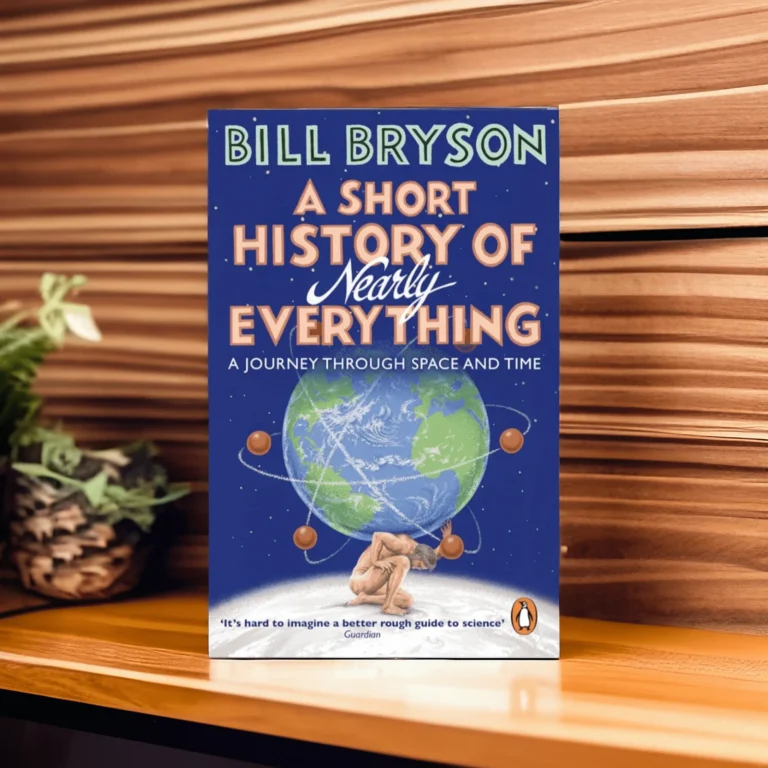By Yuval Noah Harari 🇮🇱 (Israel)
Yuval Noah Harari’s Sapiens: A Brief History of Humankind is a groundbreaking exploration of humanity’s journey—from insignificant apes to the dominant force shaping the planet. Published in 2011, this book masterfully blends science, philosophy, anthropology, and sociology to present a captivating narrative of our species’ history. Harari challenges conventional wisdom, presenting complex ideas in an accessible, profound, and often unsettling manner. 🧠🌍
 |
| A Brief History of Humankind |
📜 Overview of the Book
Sapiens is divided into four major sections, each addressing a pivotal era in human development:
1. The Cognitive Revolution (c. 70,000 BCE) 🧠💡
Harari argues that humans became the dominant species due to their ability to create and believe in shared myths. This “cognitive leap” enabled cooperation on a massive scale, from tribal communities to global empires. Language, imagination, and storytelling allowed Homo sapiens to outpace other species, including Neanderthals. 🏹🔥
2. The Agricultural Revolution (c. 10,000 BCE) 🌾🚜
Harari presents a critical view of agriculture, calling it “history’s biggest fraud.” While farming created surpluses and allowed civilizations to rise, it also led to inequality, overwork, and environmental destruction. Agriculture may have fed more people, but it also enslaved humans to a labor-intensive lifestyle. ⚖️🌍
3. The Unification of Humankind 🌍🤝
Harari examines how empires, religions, and money served as unifying forces. These constructs enabled large-scale cooperation but often came at the cost of individual freedoms and cultural diversity. He explores how abstract concepts like nationalism and capitalism shape modern societies. 💰📜
4. The Scientific Revolution (c. 1500 CE) 🔬🚀
This section delves into how the Scientific Revolution reshaped humanity’s understanding of the world. Harari explores the relationship between science, capitalism, and imperialism, highlighting how technological progress brings both innovation and new ethical dilemmas. ⚙️📡
🌟 Why Sapiens Is a Must-Read
What makes Sapiens truly remarkable is Harari’s ability to connect historical dots across disciplines, offering fresh perspectives on well-known events. His insights challenge readers to reconsider long-held beliefs—whether about the benefits of agriculture or the ethics of technological advancements. If you enjoy thought-provoking books that reshape your worldview, Sapiens is an essential read. 🤯📚
📌 Benefits of Reading Sapiens:
✔️ Expands your understanding of human history 🏛️📖
✔️ Challenges conventional wisdom 💭⚡
✔️ Provides deep philosophical and ethical insights 🤔🌎
✔️ Engages with modern societal issues 💰🧑🔬
✔️ Written in an engaging, accessible style ✍️✨
📊 Book Comparison: Sapiens vs. Other Bestsellers
| 📖 Book Title | ✍️ Author | 🌟 Key Theme & Rating |
|---|---|---|
| Sapiens: A Brief History of Humankind | Yuval Noah Harari 🇮🇱 | Human Evolution & Society ⭐⭐⭐⭐⭐ |
| Guns, Germs, and Steel | Jared Diamond 🇺🇸 | Environmental Determinism ⭐⭐⭐⭐ |
| The Selfish Gene | Richard Dawkins 🇬🇧 | Evolution & Genetics ⭐⭐⭐⭐⭐ |
| Homo Deus | Yuval Noah Harari 🇮🇱 | Future of Humanity ⭐⭐⭐⭐ |
| A Short History of Nearly Everything | Bill Bryson 🇺🇸 | Science & History ⭐⭐⭐⭐ |
📢 Final Thoughts
Sapiens is more than just a history book—it’s a mirror reflecting humanity’s triumphs and contradictions. Whether you’re a history enthusiast, a philosopher, or a casual reader, this book will leave a lasting impression. 🌍🔍
Are you ready to rethink everything you know about humanity? 🤯📖





